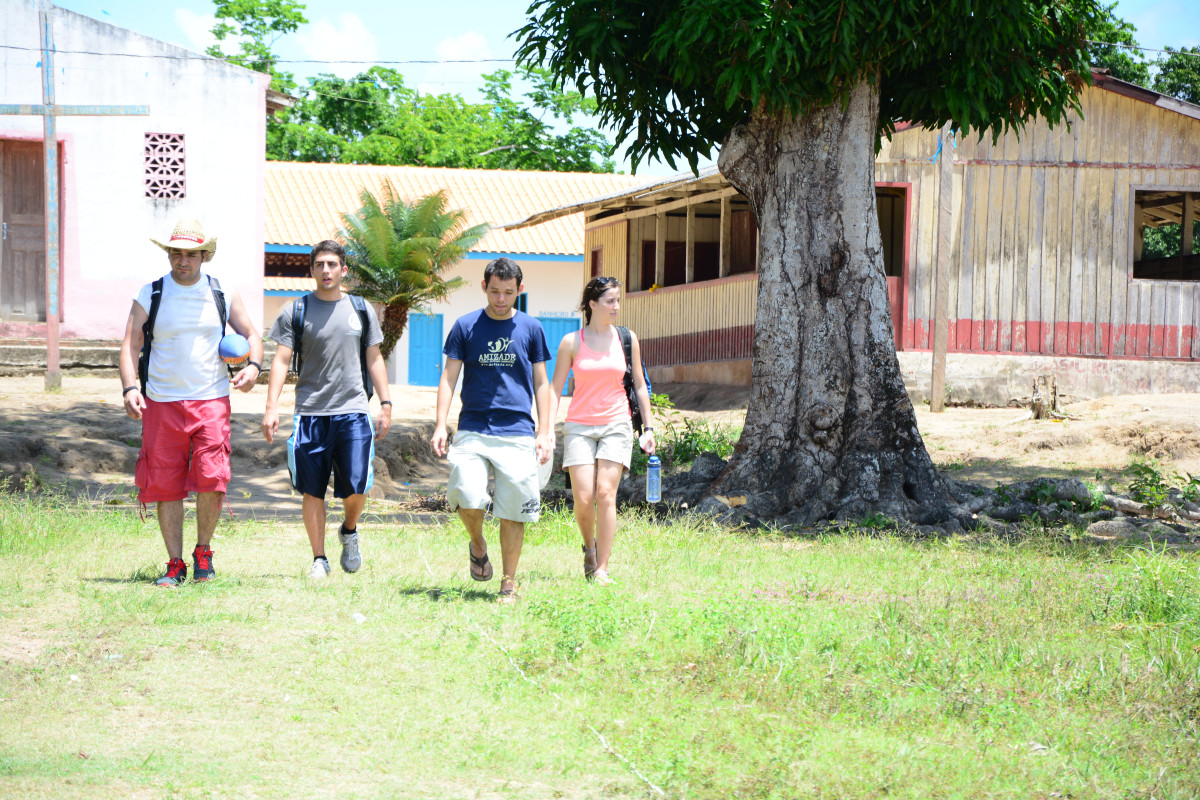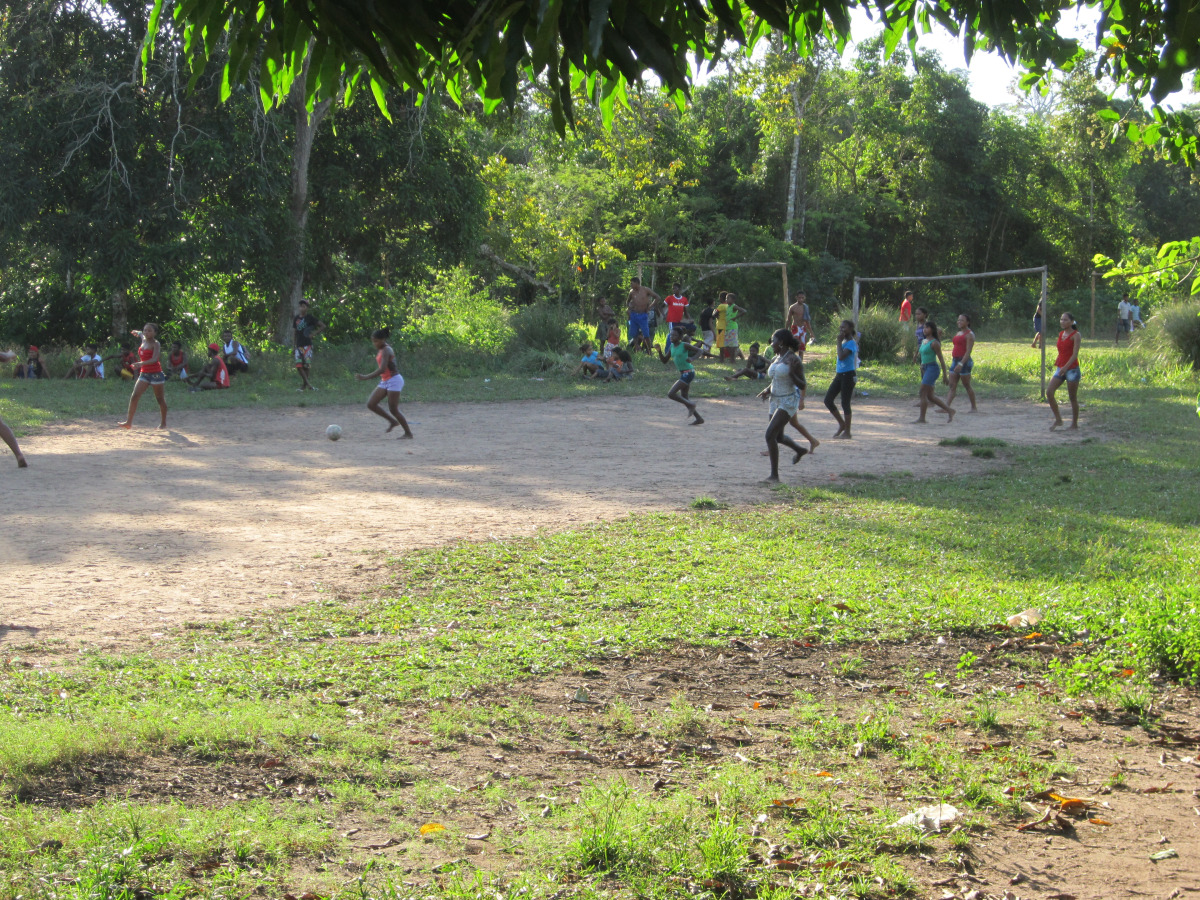Article by Djuna Gulliver
 It takes a 24-hour boat ride along the Amazon to reach the city of Tapagem, Brazil, inhabited by 200 Quilombo people. This secluded community offers a rare look at life outside the modern hustle and bustle of the technology age. “My initial reaction was, ‘Wow this is one of the most peaceful places with beautiful scenery,’” says Sarah Trossman, chemical engineering major at the University of Pittsburgh (UPitt). “The people are content with their simple way of life and it was very refreshing.”
It takes a 24-hour boat ride along the Amazon to reach the city of Tapagem, Brazil, inhabited by 200 Quilombo people. This secluded community offers a rare look at life outside the modern hustle and bustle of the technology age. “My initial reaction was, ‘Wow this is one of the most peaceful places with beautiful scenery,’” says Sarah Trossman, chemical engineering major at the University of Pittsburgh (UPitt). “The people are content with their simple way of life and it was very refreshing.”
Yet, in such a remote area of the country, the Quilombo have no means of electricity, little means of communication, and more importantly, limited options for drinking water. The villagers often resort to drinking river water, contaminated from upstream mining and poor latrine systems. As a result, many villagers are ailed with chronic digestive problems. The community of Tapagem is in great need of reliable, clean drinking water.
In 2013, the University of Pittsburgh chapter of Engineers Without Borders (EWB-Pitt) set out to assess how they could bring improved drinking water to Tapagem. “It is our goal to improve the quality of life of the community members. It is our vision to establish health conditions in the community through education, access to clean water, and proper sanitation,” says Johnathan Maynard, bioengineer major at UPitt.
 In August 2013, EWB-Pitt successfully completed their first assessment trip. The EWB team surveyed the community on their current method of obtaining water, their understanding of water sanitation, their current state of health, and their use the chlorine provided by the government. Additionally, the team tested the river water and well water for bacterial contamination. All of the water sampled contained unsafe levels of E.coli. Shockingly, the community well water had the highest levels of bacterial contamination. Given the lack of a Tapagem sanitation system, some bacterial contamination was expected. “But we were surprised that the well water was more contaminated than the river water,” says Trossman. “The well contamination emphasized that whatever we implement in the future must be accompanied by very specific, well described maintenance instructions that the community members understand. We will give the community members the tools and resources they need which will enable them to sustain the project.”
In August 2013, EWB-Pitt successfully completed their first assessment trip. The EWB team surveyed the community on their current method of obtaining water, their understanding of water sanitation, their current state of health, and their use the chlorine provided by the government. Additionally, the team tested the river water and well water for bacterial contamination. All of the water sampled contained unsafe levels of E.coli. Shockingly, the community well water had the highest levels of bacterial contamination. Given the lack of a Tapagem sanitation system, some bacterial contamination was expected. “But we were surprised that the well water was more contaminated than the river water,” says Trossman. “The well contamination emphasized that whatever we implement in the future must be accompanied by very specific, well described maintenance instructions that the community members understand. We will give the community members the tools and resources they need which will enable them to sustain the project.”
Clearly, EWB-Pitt has their work cut out for them. A second trip is scheduled for the Summer of 2015. During this trip, the team hopes to further sample the river and well water for both bacterial and metal contaminates. They also hope to determine the best water treatment system for Tapagem. Systems under consideration include individual rainwater catchment systems, chlorine drip systems, and biosand filter systems.
 It’s not just the community of Tapagem that benefits from EWB. “Being involved with EWB gives me the opportunity to use the skills I learned in class to help others. EWB has expanded my understanding and offered me so many opportunities to gain new skills and develop myself professionally,” says Trossman. Other EWB-Pitt members are additionally grateful for the application of college-learned techniques to underdeveloped communities. “I have wanted to join EWB since I was a junior in high school,” says Deepa Issar, bioengineering major at UPitt. “It’s applying the things I learn in classes to help others.”
It’s not just the community of Tapagem that benefits from EWB. “Being involved with EWB gives me the opportunity to use the skills I learned in class to help others. EWB has expanded my understanding and offered me so many opportunities to gain new skills and develop myself professionally,” says Trossman. Other EWB-Pitt members are additionally grateful for the application of college-learned techniques to underdeveloped communities. “I have wanted to join EWB since I was a junior in high school,” says Deepa Issar, bioengineering major at UPitt. “It’s applying the things I learn in classes to help others.”
There is no doubt that EWB offers a Pittsburgh engineers a chance to use high-level skills for culturally unique yet marginalized communities. “I saw the need in undeveloped nations for access to reliable and quality resources including shelter, water, and sanitation that we take for granted in the first world,” Maynard says. “My desire to change this and to bring to the light the challenges these people face drove me to join this chapter to collaborate with others with aligned goals.”
While EWB-Pitt had initially hoped to make the second trip in the Summer of 2014, funding constraints and a need for technical mentors delayed their travels. Still hoping for a second trip this coming summer, EWB-Pitt is now searching for new volunteers to be technical mentors. Mentors could advise the student chapter on a range of topics, from water treatment/distribution to hydrology to Brazilian politics/culture. Anyone interested in joining the EWB-Pitt team can find more information on the ASCE online forum posting, or contact Sarah Trossman, EWB-Pitt President.

